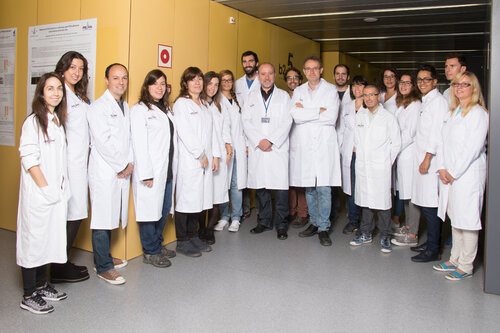Researchers from Lleida discover a new function of a protein that would help diagnose amyotrophic lateral sclerosis
The discovery could explain the motives that cause the cells of these patients to have altered forms and worsen the function of motor neurons
Researchers from the Metabolic Physiopathology and Cell Signaling and Apoptosis Group groups of the University of Lleida (UdL) and the Biomedical Research Institute of Lleida (IRBLleida), the Neurology Service of the University Hospital of Bellvitge and the Biomedical Research Center Network on Neurodegenerative Diseases (CIBERNED), have discovered a new function of the TDP-43 protein, which is affected in amyotrophic lateral sclerosis (ALS). Thanks to this discovery, it could explain why the cells of these patients have altered forms of proteins ─cosa that worsens the function of motor neurons─ and, therefore, would allow to better understand the ALS and help diagnose it. This finding was recently published in Autophagy.
The discovery of the collaboration of the TDP-43 protein in autophagy, the system of cleaning and recycling of cells, has allowed us to see that this function is altered in patients affected by ALS. This dysfunction causes less cleaning and recycling of the cells and this could explain why the cells of these patients have altered forms of proteins. This research can help diagnose ALS and also better understand the disease.
Reference article: Torres P, Ramírez-Núñez O, Romero-Guevara R, Barés G, Granado-Serrano AB, Ayala V, Boada J, Fontdevila L, Povedano M, Sanchís D, Pamplona R, Ferrer I, Portero-Otín M. Cryptic exon splicing function of TARDBP interacts with autophagy in nervous tissue. Autophagy. 2018 Jun 18. doi: 10.1080/15548627.2018.1474311.

This finding was recently published in Autophagy.






